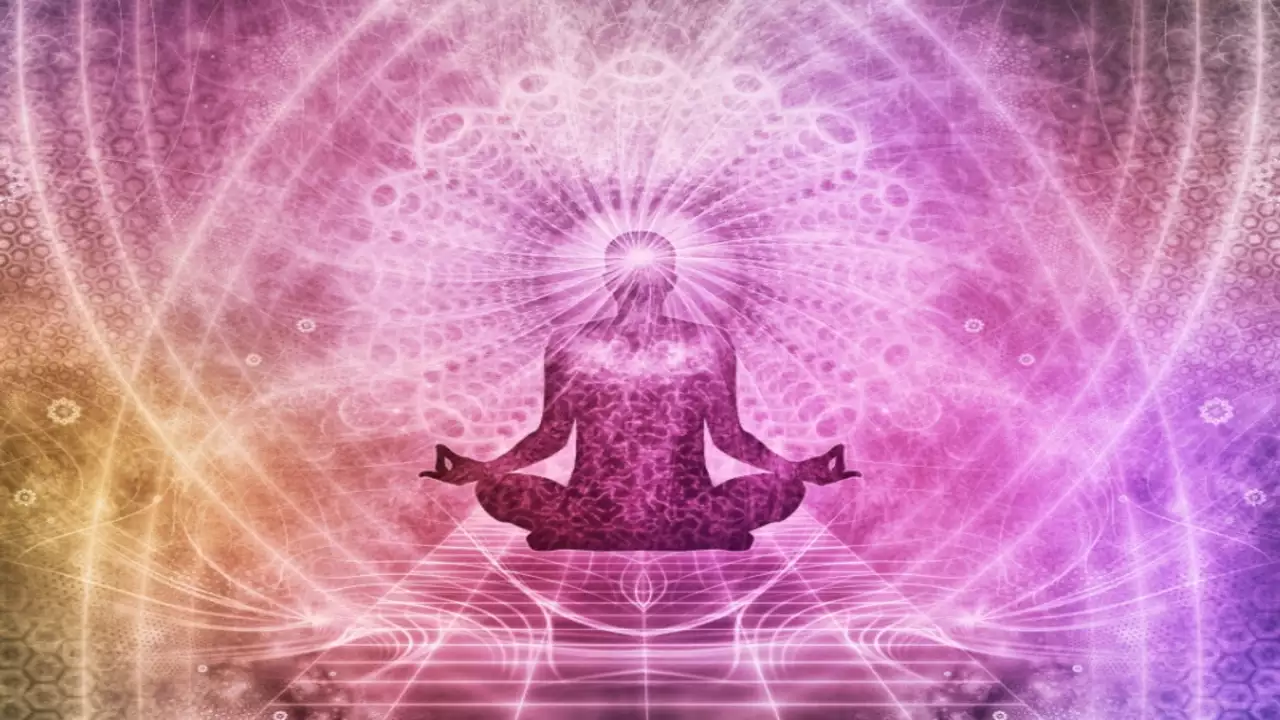- Introduction
- Section 1: Understanding Reincarnation
- Section 2: Historical Perspectives
- Section 3: Reincarnation and Spiritual Growth
- Section 4: Scientific Exploration
- Section 5: Reincarnation in Different Cultures
- Section 6: Reincarnation and Personal Transformation
- Section 7: Criticisms and Skepticism
- Conclusion
- FAQs (Frequently Asked Questions)
Introduction
The concept of reincarnation has fascinated humanity for centuries. It is a belief that suggests the soul is eternal and undergoes multiple lifetimes, each offering opportunities for growth, learning, and spiritual evolution. In this article, we will delve into the law of reincarnation raw, exploring its fundamental principles, historical perspectives, and its significance in various spiritual and religious traditions.
Section 1: Understanding Reincarnation
What is the Law of Reincarnation raw?
Reincarnation, also known as transmigration or rebirth, is the belief that the soul, after the death of the physical body, is reborn into a new body to continue its journey. It is rooted in the notion that life is a cycle of birth, death, and rebirth, with each incarnation providing opportunities for spiritual growth and the resolution of karmic debts.
The Soul’s Journey Through Lifetimes
According to the law of reincarnation raw, the soul traverses through various lifetimes, assuming different physical forms and experiencing diverse circumstances. Each life presents a unique set of challenges, lessons, and opportunities for self-realization. The soul carries with it the accumulated wisdom, experiences, and karmic imprints from previous incarnations.
Karma and Reincarnation
Karma, another fundamental concept associated with reincarnation, refers to the law of cause and effect. It suggests that our actions, intentions, and thoughts create energetic imprints that shape our future experiences. The consequences of past actions, positive or negative, influence the circumstances and conditions of our subsequent lives. Reincarnation, therefore, allows individuals to learn from past mistakes and evolve spiritually.
Section 2: Historical Perspectives
Ancient Origins of Reincarnation Beliefs
The concept of reincarnation can be traced back to ancient civilizations such as those in Egypt, Mesopotamia, and India. These cultures held the belief in an eternal soul that reincarnates after death. The idea of cyclic existence and rebirth resonated with the human understanding of life’s continuous and interconnected nature.
Reincarnation in Eastern Religions
Eastern religions such as Hinduism, Buddhism, Jainism, and Sikhism embrace the concept of reincarnation as a core tenet. In Hinduism, the cycle of birth, death, and rebirth is governed by the law of karma. Buddhism views reincarnation as part of the broader cycle of samsara, with the ultimate goal being liberation from this cycle through enlightenment.
Reincarnation in Western Thought
While the belief in reincarnation is more commonly associated with Eastern philosophies, it has also found its way into Western thought. Ancient Greek philosophers such as Pythagoras and Plato contemplated the idea of the soul’s immortality and its journey through multiple lifetimes. In contemporary times, various Western esoteric traditions and New Age movements explore the concept of reincarnation.
Section 3: Reincarnation and Spiritual Growth
Evolution of the Soul
The law of reincarnation raw suggests that the soul evolves over time, learning and growing through different life experiences. Each incarnation provides an opportunity for the soul to acquire wisdom, develop virtues, and resolve karmic patterns. This evolutionary process ultimately aims at the soul’s reunion with its divine source.
Lessons and Challenges in Each Lifetime
In the realm of reincarnation, souls choose specific life circumstances and encounters to facilitate their growth and learning. These choices may involve challenging situations, relationships, or hardships that prompt soul-level lessons and personal transformation. By facing these challenges, individuals have the chance to expand their consciousness and fulfill their soul’s purpose.
Reincarnation as a Path to Enlightenment
Many spiritual traditions view reincarnation as a means to achieve spiritual enlightenment. Through successive lifetimes, individuals have the opportunity to accumulate knowledge, refine their character, and cultivate spiritual qualities. The ultimate goal is to break free from the cycle of rebirth and attain a state of spiritual liberation or union with the divine.
Section 4: Scientific Exploration
Contemporary Research on Reincarnation
In recent years, scientific investigations into reincarnation have gained attention. Researchers study cases of individuals who claim to remember past lives and gather evidence to support their accounts. These studies often involve the verification of detailed information provided by the subjects that can be independently verified, such as accurate descriptions of deceased individuals or past events.
Past Life Memories and Regression Therapy
Past life regression therapy has emerged as a therapeutic approach aimed at exploring and healing past-life traumas and karmic imprints. Through hypnosis or guided meditation, individuals can access memories from previous incarnations, gaining insights and resolving emotional or psychological challenges rooted in past lives.
Near-Death Experiences and Reincarnation
Near-death experiences (NDEs) have also contributed to the understanding of reincarnation. Many individuals who have undergone NDEs report encountering a realm of light, meeting deceased loved ones, and gaining insights into the nature of life and death. These experiences often support the belief in an afterlife and the continuation of consciousness beyond physical death.
Section 5: Reincarnation in Different Cultures
Reincarnation in Hinduism and Buddhism
Hinduism and Buddhism have rich and intricate beliefs about reincarnation. In Hinduism, the concept of samsara holds that the soul is trapped in the cycle of birth, death, and rebirth until it achieves moksha, liberation from this cycle. Buddhism teaches that through enlightenment, one can break free from the cycle of rebirth and attain nirvana, a state of ultimate peace and liberation.
Reincarnation in Jainism and Sikhism
Jainism and Sikhism, two Indian religions, also embrace the idea of reincarnation. In Jainism, the cycle of birth and death is seen as a result of karma and the accumulation of karmic particles. By practicing non-violence and spiritual purification, individuals can liberate their souls from this cycle. Sikhism acknowledges the conceptof reincarnation, believing in the continuous cycle of birth and death until the soul merges with the divine.
Reincarnation in Ancient Egyptian Beliefs
Ancient Egyptian culture held intricate beliefs regarding the afterlife and reincarnation. Egyptians believed that after death, the soul would journey through the underworld, facing trials and judgments. If found worthy, the soul would be granted an afterlife and the possibility of rebirth.
Reincarnation in Native American Spirituality
Native American spirituality also incorporates the concept of reincarnation. Many Native American tribes believe in the cyclical nature of life and view death as a transition to another realm where the soul continues its journey. Reincarnation allows for spiritual growth and the continuation of ancestral connections.
Section 6: Reincarnation and Personal Transformation
Past-Life Regression Therapy
Past-life regression therapy has gained popularity as a tool for personal growth and healing. By accessing past-life memories, individuals can explore unresolved issues, traumas, and patterns that may be influencing their present lives. This therapeutic approach can offer insights, facilitate healing, and support personal transformation.
Exploring Past-Life Connections
Reincarnation suggests that individuals may have connections with people from past lives. Exploring these connections can provide a deeper understanding of current relationships and dynamics. Recognizing and resolving karmic patterns with others can promote harmony, forgiveness, and personal evolution.
Healing and Releasing Karmic Patterns
The law of reincarnation raw acknowledges the influence of karma on our lives. By becoming aware of karmic patterns, individuals can actively work towards healing and releasing negative imprints. This may involve forgiveness, compassion, self-reflection, and conscious choices aligned with spiritual growth.
Section 7: Criticisms and Skepticism
Arguments Against Reincarnation
Despite the widespread belief in reincarnation, there are critics who challenge its validity. Skeptics argue that the lack of scientific evidence and the inability to provide verifiable proof of past lives undermine the credibility of reincarnation. Additionally, religious and philosophical disagreements also contribute to skepticism.
Scientific Skepticism and Reincarnation
The scientific community remains divided on the subject of reincarnation. While some researchers explore cases suggestive of past-life memories, others maintain that these experiences can be attributed to psychological phenomena, false memories, or cultural conditioning. Further scientific inquiry is needed to provide conclusive evidence.
Cultural and Religious Objections
Certain cultural and religious beliefs may conflict with the idea of reincarnation. Some religious traditions hold doctrines that contradict or exclude the concept of multiple lives. Cultural differences and the diversity of worldviews also contribute to varying degrees of acceptance or rejection of reincarnation.
Conclusion
The law of reincarnation raw offers a profound perspective on the nature of existence, personal growth, and spiritual evolution. It is a concept deeply ingrained in the beliefs and philosophies of numerous cultures worldwide. Whether embraced as a spiritual truth, explored through regression therapy, or examined through scientific inquiry, reincarnation continues to captivate and inspire individuals on their quest for meaning and self-discovery.
FAQs (Frequently Asked Questions)
- Is there scientific evidence to support reincarnation? While some scientific research explores cases suggestive of past-life memories, the evidence remains controversial and subject to skepticism within the scientific community.
- Can past-life regression therapy help me uncover my past lives? Past-life regression therapy can provide insights and facilitate healing by accessing past-life memories. However, it’s important to approach it with an open mind and consult a qualified therapist.
- Do all religions believe in reincarnation? No, not all religions embrace the concept of reincarnation. Cultural and religious beliefs vary, and some doctrines contradict or exclude the idea of multiple lives.
- Can I choose my next life during reincarnation? The belief regarding the ability to choose one’s next life varies across different spiritual traditions. Some suggest that souls have the opportunity to influence certain aspects, while others propose that the circumstances of the next life are influenced by past actions and karma.
- How does reincarnation impact personal growth and spiritual evolution? Reincarnation provides opportunities for souls to learn, grow, and resolve karmic imprints. Each life presents unique challenges and lessons that contribute to personal transformation and the evolution of consciousness.





